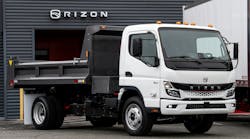“To successfully increase our national energy security and reduce our dependence on oil, particularly imported oil, requires a suite of technology and policy options and approaches,” Bill Van Amburg, senior vice president for CALSTART, told the U.S. Senate Committee on Energy and Natural Resources.
“While it is tempting to fix on attractive single solutions, CALSTART strongly believes there is no ‘silver bullet’ able to address our national energy challenges, no one fuel or technology that alone can effectively reduce our petroleum use to the degree needed. Rather, we have followed and recommend a ‘silver buckshot’ strategy, advocating a portfolio approach to policy, technology development and market support decisions…”
The Senate Committee heard testimony yesterday from CALSTART concerning the proposed Advanced Vehicle Technology Act (AVTA). The Act is intended to reduce oil consumption in transportation through advanced vehicle technologies and fuels, including electric drive technologies.
“I was trying to emphasize the need to take a portfolio approach to supporting vehicle technologies, rather than backing only one alternative power option,” Van Amburg told Fleet Owner .
“Nearly 70 percent of the oil used in the United States goes for transportation, according to the U.S. Energy Information Agency,” he continued. “Some assume that there is more oil used in power production or other uses. However, that is not the case. Therefore, to effectively address energy security and oil use, we must make transportation the top focus of our national efforts.”
Van Amburg noted that there “are two main strategies to successfully reduce oil use in transportation, and both are required to be effective: One, use less fuel to do the same work – in other words, increase efficiency, such as with hybrid, electric drive and other technologies; and two, switch to non-petroleum fuels, such as natural gas and bio-based fuels.”
The testimony from CALSTART also emphasized the need to create workable policies for commercial vehicles and passenger vehicles and noted that different approaches are necessary. “We need strategies to reduce oil use across all vehicles platforms, and the approaches will vary across vehicle sizes,” Van Amburg said. “It may sound trivial, but a big rig or refuse truck is not a car. While the high level strategies required are the same, the state of technology and the effectiveness of different solutions will vary by size, use and type of vehicle.”
Van Amburg also shared the results of recent CALSTART research on measures the transportation industry feels would be most effective in encouraging the development and deployment of alternative power vehicles. Vouchers for truck purchases were at the top of the list, followed by research and development funding for new technologies, grants for advanced technology manufacturing, tax credits for truck purchases and other incentives, such as accelerated depreciation for vehicles.
“I did feel the senators on the committee were really engaged,” he told Fleet Owner. “They asked good questions. Where things can break down is when measures actually get to a floor vote. Then partisan politics can take over. And, of course, the emphasis in Congress now is on spending cuts rather than investments.”
Still, Van Amburg noted that he is hopeful for a positive outcome. “We would like to see a performance standard [come out of this],” he said. “Some metrics and performance goals [would be very helpful] and would encourage competition. Any incentives and rewards could be based upon how well those goals are met.”


